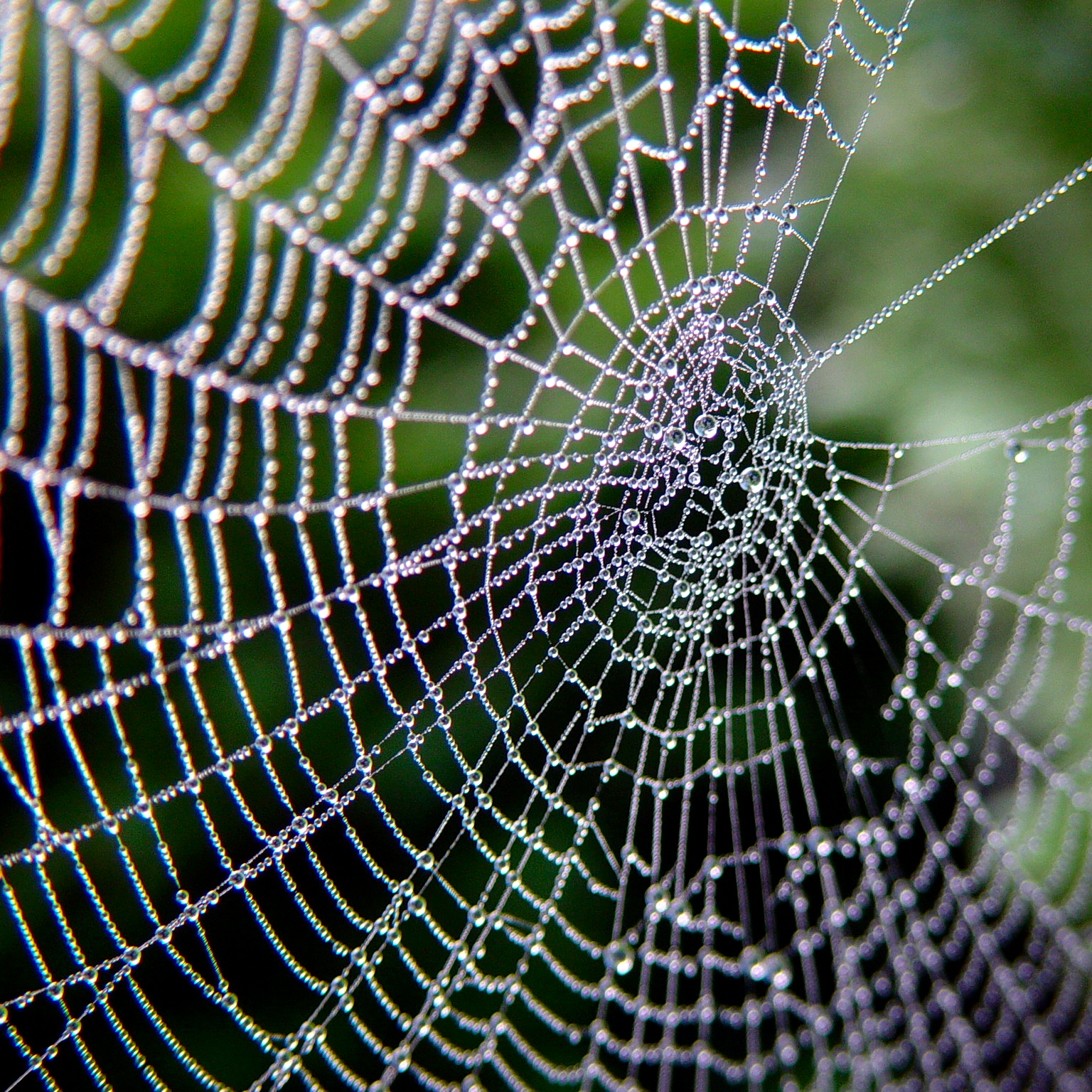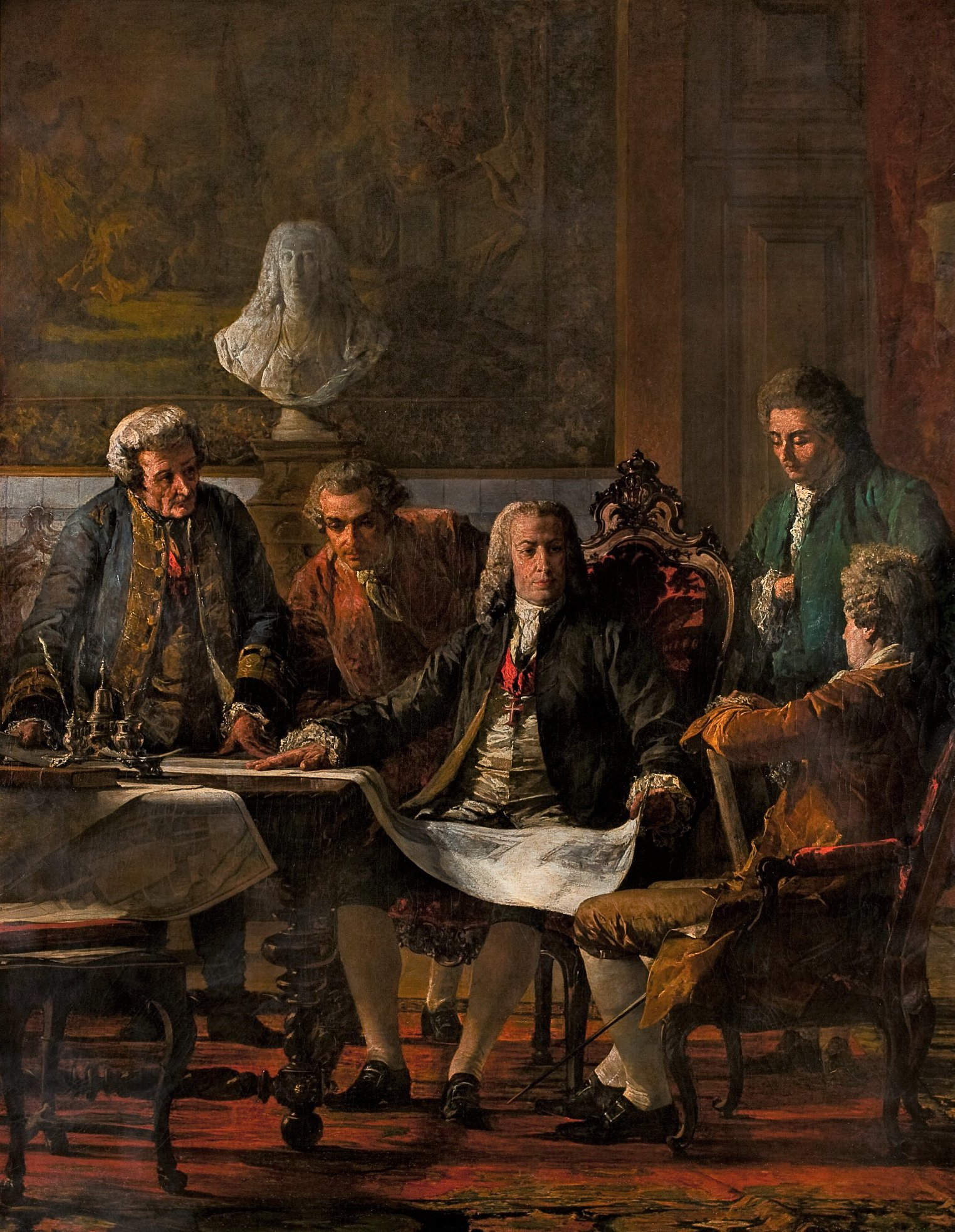In my most recent posts I discussed the amazing fresco series, the “Allegory of Good and Bad Government“ by Ambrogio Lorenzetti, painted in the late 1330’s in Siena. I interpreted the images of the good and bad cities, and their associated countrysides, as representations of niche construction—a topic much considered on this blog, by myself and others.

Niche construction theory points to organisms’ capacities to modify their environments to make them habitable—a standard example is spiders’ capacity to construct webs that transform their location into their habitat, by changing it so that provides them food. Lorenzetti, I argued, illustrates the civic republican idea that human beings are able to fashion a habitat that provides both for their metabolic and their cultural needs by deploying their capacity to create just political institutions. (Image by Josef F. Steufer CC 2.0)
In my last post I started to explore an implication of this way of thinking, as it applies to the COVID pandemic–relevant to the frescos because hardly more than a decade after their completion Siena was devastated by the plague. Picking up on discussions with Robert Bailey I considered whether the focus on the human (and specifically social) activity of niche construction ignores what lies “outside” the frame of the picture, thus ignoring the vulnerability of societies to environmental factors outside their control. But I argued against that view, instead stressing the importance of “inside” factors, associated with niche construction, over what comes from “outside,” from raw nature. That is, I take the consequences for a society of exogenous danger to be best understood not in terms of the danger itself, but in terms of factors internal to society through which damaging effects are distributed, and which thus play a decisive role in how they are suffered. It is a stain on our society that this pattern is revealed so clearly in the distribution of harm due to COVID.
Well if there’s one thing I’m as obsessed with as the idea of niche construction it’s the work of Jean-Jacques Rousseau. And it turns out something Rousseau said bears directly on this question of the relative importance of inside and outside when thinking about shocks to social systems that might be framed as external, “natural” disasters. Rousseau’s remarks appear in a letter to Voltaire, commenting on his poem on the Lisbon Earthquake of 1755. Research on the exchange led me to Russell Dynes’ article, which supports the idea that Rousseau was one of the first to emphasize the inside. By being perhaps the first to associate vulnerability to natural disaster with internal social factors, Dynes suggests, Rousseau helped inaugurate a “social science view” of disaster. Though Rousseau’s insights were not taken up in a systematic way for nearly two centuries, they nonetheless “prefigured current perspectives” (112 (page references to published version)), which I presume inform the Disaster Research Center Dynes helped found and made his intellectual home.
Dynes situates the exchange between Rousseau and Voltaire within 18th Century theological debates about the role of Providence in human affairs. The earthquake struck the famously pious city on November 1, All Souls Day, when people were in church; many were killed as they worshipped. Thus it challenged the Enlightenment era optimism articulated by Leibniz and Pope, who solved the traditional problem of evil by asserting that God’s goodness ensured the goodness of Creation overall, implying that any appearance of evil is only apparent, due to humans’ inability to grasp its function within the whole.
Voltaire composed his “Poem on the Lisbon Disaster” within weeks of the event; in it he expresses a mix of emotional and intellectual dissatisfaction with the view that human suffering on the scale of Lisbon’s can be reconciled with the goodness of the Creator. Emotionally, the suffering simply cannot be accepted, and a decent, humane sensibility should balk at accepting the idea that it can be rationalized:
Ill could not from a perfect being spring,
Nor from another, since God’s sovereign king;
And yet, sad truth! in this our world ’tis found,
What contradictions here my soul confound!
The earthquake that destroyed Lisbon thus shook more than the ground, for Voltaire: it undercut the effort to justify suffering by reference to some wider good, opening the possibility that the universe is laced with irredeemable evil, hence that some undeserved suffering can be attributed to God.
 Rousseau could not abide that attribution. He responded to Voltaire in a lengthy letter, which looks beyond the particular case of Lisbon to the problem of evil more generally. But in some brief remarks about the suffering of the city’s residents he argues that its source was not God, but their own choices and actions: their suffering stemmed not simply from something external, the natural seismic phenomenon in itself. Rather, it could only be explained by factors that were internal: the city’s building practices, and individuals’ socially inflected motivations.
Rousseau could not abide that attribution. He responded to Voltaire in a lengthy letter, which looks beyond the particular case of Lisbon to the problem of evil more generally. But in some brief remarks about the suffering of the city’s residents he argues that its source was not God, but their own choices and actions: their suffering stemmed not simply from something external, the natural seismic phenomenon in itself. Rather, it could only be explained by factors that were internal: the city’s building practices, and individuals’ socially inflected motivations.
On the one hand, Rousseau notes, “nature did not construct twenty thousand houses of six to seven stories there, and … if the inhabitants of this great city had been more equally spread out and more lightly lodged, the damage would have been much less and perhaps of no account” (51 (page references to linked version)). A morally neutral physical event was experienced as a disaster, that is, because of the self-created susceptibility produced by the way people inhabited that place. On the other hand, he observes, even after the danger was revealed by the initial tremor, people refused to take appropriate action. “How many unfortunate people have perished in this disaster because of one wanting to take his clothes, another his papers, another his money?” (ibid.). Their desires here reflected their values, which, Rousseau, intimates, had to do with maintaining their social identities (their clothes and papers) and position (their money)—all of which are meaningful to them primarily as means for operating within their social environment.
Dynes holds that Rousseau’s remarks are noteworthy because they show “that to understand the meaning of Lisbon depended … on an understanding of the social structure and culture in the specific community in which the earthquake took place” (112). They represent “perhaps the first attempt to conceptualize what is now known as ‘vulnerability’” (111). Lisbon’s vulnerability was not simply physical, due to the propensity of the buildings to seismic damage. It was cultural as well, due to people’s sensitivity to status, which made them discount physical danger in order to retrieve material status markers. “In contemporary terms,” Dynes notes, “their risk perception had been minimized by their pride and social position” (112). Vulnerability is thus not a brute natural fact, but rather a kind of resultant of the interaction between natural hazard and social factors. To use the language of inside and outside, the conception of vulnerability Dynes traces back to Rousseau “internalizes the external.” In the Hegelian spirit of “aufheben-ing,” Rousseau points toward a broader, more systemic conceptual framework for explaining phenomena like vulnerability to disaster, which foregrounds dialectical interrelationships between the external realm of non-human nature and the internal realm of society.

The Marquis de Pombal, chief minister of Portugal, overseeing plans for the reconstruction of Lisbon. (Miguel Ângelo Lupi, 1883)
Dynes juxtaposes the idea that the Lisbon earthquake is the occasion for Rousseau’s very modern, social scientific outlook with the explicit claim that it in fact constituted the “first modern disaster” (97; 2005, passim). An important element of its modernity is political: it is bound up with the emergence of modern state structure in Portugal. “The earthquake was the first disaster in which the state accepted the responsibility for mobilizing the emergency response and for developing and implementing a collective effort for reconstruction” (112; see also 2005, 48). Indeed, the reconstruction was marked by a concern for making new buildings earthquake proof (2005, 45)—i.e. the recovery effort marked one of the first times the state assumed responsibility for mitigating natural hazards.
For Dynes, this political feature of the Lisbon earthquake is, however, disconnected from the previous theological one: he takes it that “the development of the modern state” was “not particularly reflected in the concerns of Voltaire and Rousseau” (112). I believe Dynes does not do full justice to Rousseau here. For in his letter to Voltaire Rousseau makes clear that his remarks on Lisbon reflect the broader view he develops in his Discourse on the Origin of Inequality. There is indeed a crucial theological dimension to that work, which is what Rousseau sees as relevant to Voltaire’s argument. But it is also, in fact, a speculative genealogy of the modern state, culminating in the founding of the liberal, capitalist order projected by Locke’s political theory. That genealogy is a dialectically structured account which conceives humans’ relationship with the physical environment as recursively mediated by their social institutions: their social practices of habitation transform their surroundings from raw nature into their own proper habitat. This is the theoretical basis for the “internalization of the external” Dynes notices in Rousseau’s remarks on Lisbon. Those remarks express directly Rousseau’s signature insight, that human suffering is attributable not to nature (hence, by implication, not to God), but to unjustly constituted human societies.
Reference and further reading
Zev Trachtenberg (ORCID: https://orcid.org/0000-0002-2084-9103) is a Professor of Philosophy at the University of Oklahoma.



In the spirit of shameless self-promotion … an article that builds on this post has just appeared in the French on-line outlet Colloques fabula: it’s entitled ‘Rousseau on Hazard and Habitability. The Beginnings of a Social Interpretation of “Natural” Disasters.’ The topic of the colloque is ‘Ecocriticism(s) and Natural Catastrophes: Transdisciplinary Perspectives;’ it includes papers from a conference that was cancelled due to COVID.
This post has been made horrifyingly topical this week.
Here is a list of groups accepting contributions to aid the response.
Here are two articles whose themes intersect with the post:
https://thebreakthrough.org/issues/energy/earthquakes-resilience-and-humanitys-terrible-and-permanent-vulnerability
https://www.lrb.co.uk/blog/2023/february/construction-practices
Pingback: Harari e a Consciência, AI = extinção? supernova ao vivo e Marte também! – radinho de pilha
Pingback: 7 Major Earthquakes in Lisbon’s History: The City's Seismic Past - Lisbon Listicles
Pingback: Wikipedia Wednesday: *Poème sur le désastre de Lisbonne* | prior probability